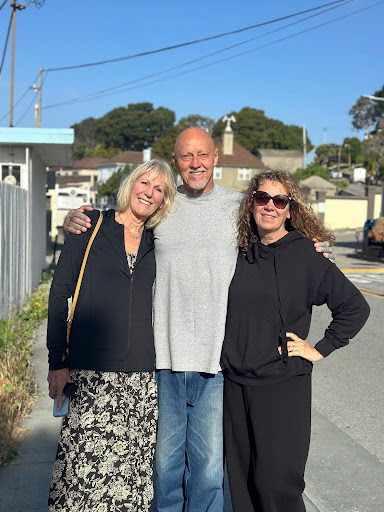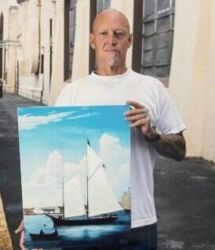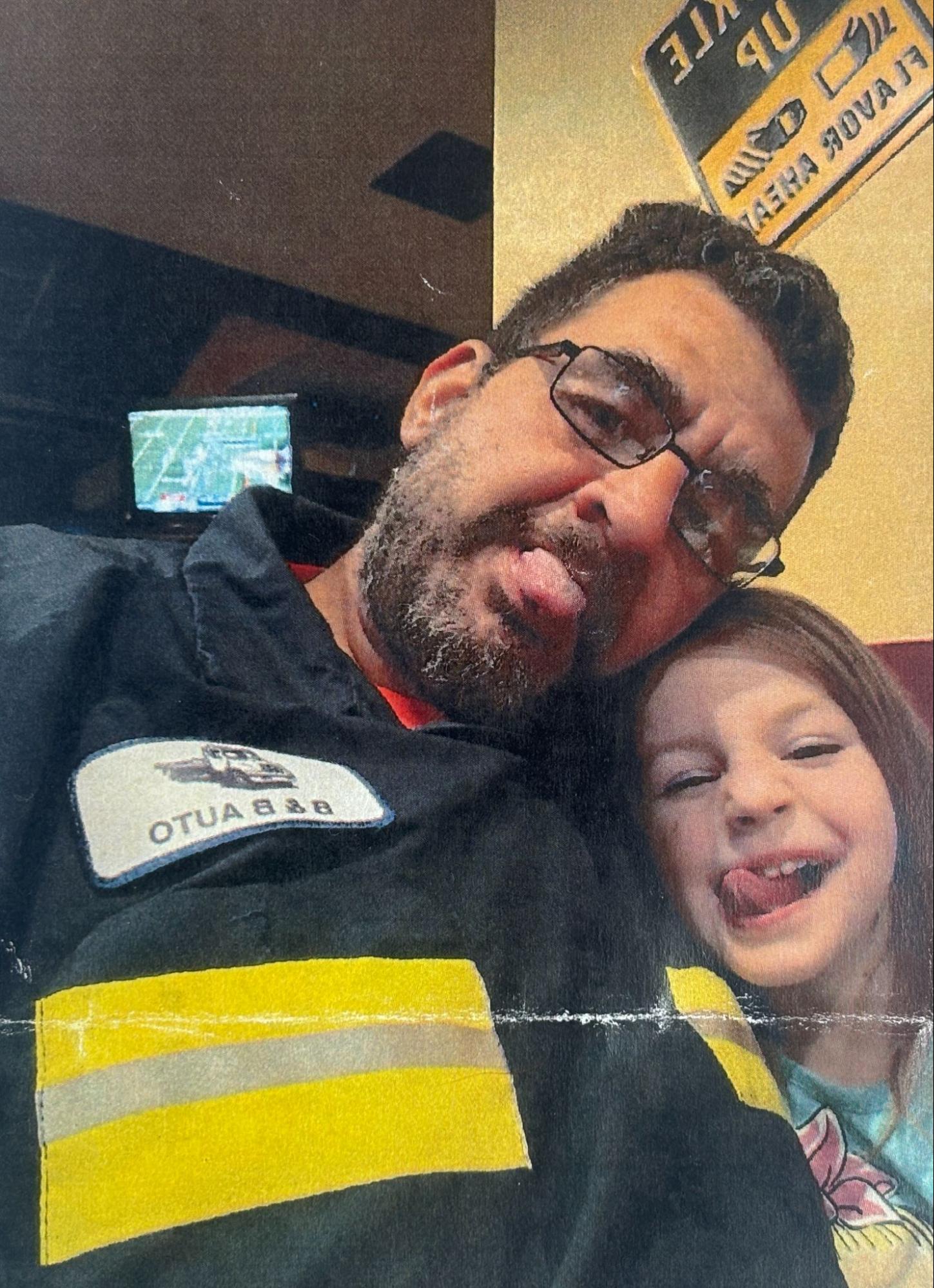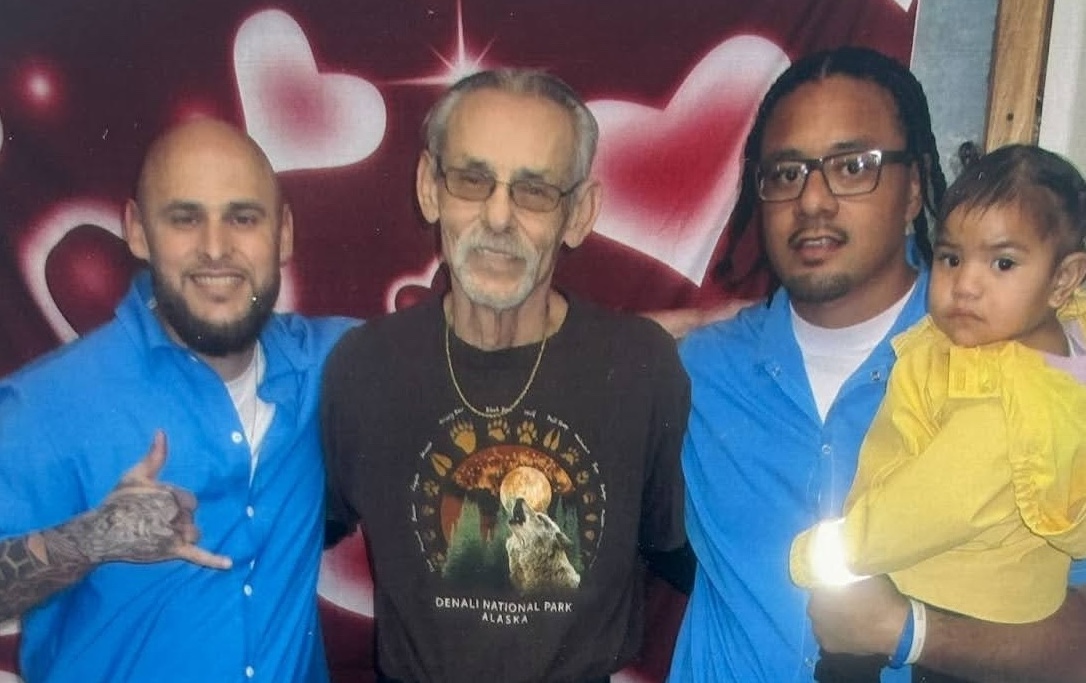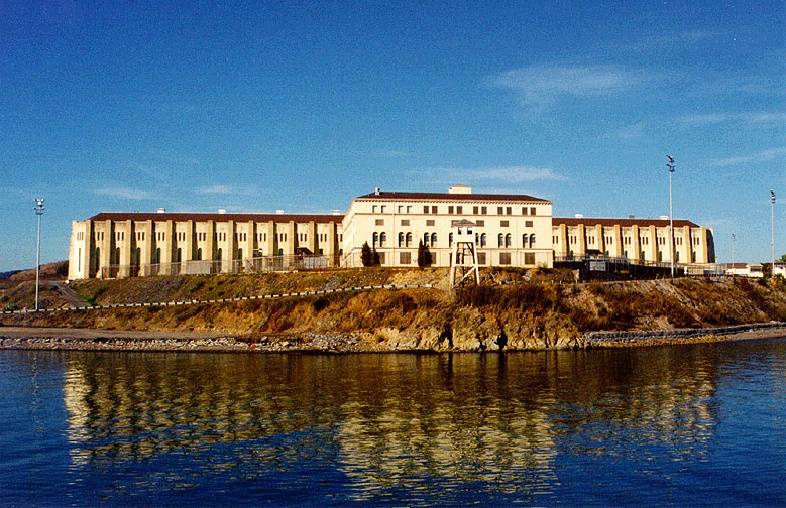Click here to watch the story of Bruce’s release.
Watch Video:
Video Transcipt:
Diane: Welcome home! Walk us through how you were feeling when you first found out you were found suitable?
Bruce: It was complicated because I had seen how much it hurt the victim’s family when they said that I was found suitable. I was going through a lot of remorse and guilt, and it put me in a state of feeling depressed. I realized it was a lose-lose, a sad situation. I thought there would be some type of feeling, the lifting of all of that heavy incarceration. I thought I would feel some happiness, but I didn’t. It was nothing like I thought it was going to be. It took a few days for me to get over that. I was depressed for a couple of days and then recognized that I still had a long road to go through: the board, then the governor, and then en banc. There’s still a hundred and fifty days in front of you, and there’s no assurance that you’re going to get out of prison yet.
So, all of it weighed heavily on me. I just concentrated on each moment and used the coping skills that I had learned throughout my years; I relied on my friends, talked with my friends and family members outside of the prison, and shared my emotions with them. Those skills got me through those tough 150 days.
When the governor finally signed off on en banc, he actually signed off early. At that time, there was a nice feeling that I was finally going to get out of prison. But even then, there’s still that weight of the impact of your crime, of what you did so many years ago.
Diane: That’s tough. I saw you during that period, too, but I didn’t realize exactly what you were going through and the heaviness you were experiencing. And, obviously, you’ve carried it since then. How did your emotions change over time?
Bruce: I don’t know if you guys saw it, but I did a lot of exercise. I concentrated on that. I had some other projects going. We worked on a tiny cell, and that one helped. Any of those projects, the mural we were doing in Donner, for example, kept my mind off of everything, and that’s how I’ve been programming for a long time, by concentrating on self-help groups and all of those things. The emotions show up once in a while, especially right before I go to bed and sometimes right as I wake up. I do grounding exercises, some meditations, and things like that to keep those emotions from getting me either depressed or anxious.
Diane: Those are wonderful coping skills. Were there certain groups inside that helped you with your rehabilitation?
Bruce: Well, California Reentry Institute, CRI, is my main one. They provided us with many opportunities to give back all we had learned over the years, helping others understand the board’s language—a different type of vocabulary. When they ask specific questions, they seek accountability, remorse, insight, and evidence that you’ve learned not to revert to that behavior. Many people and groups don’t emphasize this aspect, the deep understanding of what the board seeks when posing questions. Engaging in this helped me stay focused and occupied during that time, making it easier to overcome that. You’d think that going to the board was the most stressful part. The stage after the board is more stressful.
Diane: Can you tell us how instrumental they were in helping you get to where you are today?
Bruce: Here’s the thing about CRI. Colette and her team are very kind, giving, and understanding people. They have a different approach than the state does as far as rehabilitation. Colette completely cares about us as individuals, as humans, and that’s the one thing about her organization that’s so impactful. Treating incarcerated individuals with kindness and understanding and not so much judgment and punishment gives us the feeling that we’re not our crime and that rehabilitation is possible. These things change our thinking that everyone is our enemy or everybody’s out to get something from us. It shows us that people can be kind, which makes it able to reflect on our behaviors a lot more, especially for myself. I became the person I wanted to be, someone I knew I was before all the traumas in my life came. I was a kind, caring individual. Through Colette’s group and the curriculum she developed, I connected with all of this and the safety that that group gave me. I was always afraid that they’d use it against me if I gave somebody information. Colette’s group gave me trust to where I could share everything, all my traumas and my hurts, and be able to heal from it and be my authentic self.
Diane: I’ve never heard anyone articulate the fear of vulnerability coming back to haunt you as clearly as you did. Your insight really highlights how pervasive this fear is in such an environment. While you were incarcerated, when did you begin to look forward to your release?
Bruce: It was virtually a shock when I was given an actual date, which was only about three days before I was released. I was in a state of shock until probably two or three days after I was released. I felt nauseous. I felt like I just got off of a carnival ride. Everything was moving so fast, especially once I got in a car for the first time because you become very hyper-vigilant about anything moving around you in prison. So, when I got out and we started driving around, I found that my eyes were trying to keep track of everything moving around me. It was making me dizzy. It was a strange feeling—just sensory overload.
Diane: It was your safety mechanism. When I was in prison, I noticed that you knew where everyone was all the time, behind you and in front of you. Your brain is automatically dialed in, thinking I must keep myself safe.
Bruce: Right, right, exactly.
Diane: What did you do next?
Bruce: Colette took me to get a cell phone, clothes, and groceries. That was even more of a sensory overload. I’ve talked to her about maybe changing those things to a couple of days later for the next guys who come out. I’ve also talked to the other fellows who have gotten out and gone through the same thing. They all agreed it was too much stress that didn’t need to be done at that time. It feels like trauma, especially in the grocery store where people are zipping all around you and on their cell phones. But once I got to the Airbnb my friends—Marissa, Haas, and Gappy—rented for the weekend, I could decompress and relax. They lit the barbecue, and then I relaxed and accepted freedom. There was a nice backyard with a bunch of trees. I was able to breathe. That was an incredible feeling.
Diane: What was the first meal you ate?
Bruce: My friend brought some fresh bluefin tuna. It was Toro, the belly section. I just put some soy sauce on it, and that was it. That was the first thing I ate, and it was incredible. Then there was the Peking duck that Emma brought when I was released. She came the day before to see me and asked what I wanted for my first meal, and she got that. So, yeah, those two things were fantastic. They were the most flavorful things I’ve eaten in 25 years.
Diane: Share your connection with the sea, and why that fish is important.
Bruce: I grew up going to San Felipe in Mexico every summer, where I developed that connection. We went there for a month straight during summer vacation throughout my childhood. The love I created for the ocean there in Mexico in the late sixties and early seventies was incredible. It was my paradise. As I got older, we also went to Oceanside, California, quite a bit, where I would surf and such. I then started profound sea fishing, and my incredible life experiences with whales, porpoises, and other sea life were incredible. I’ve reached over I’vebow of a boat and had porpoises come up and nudge my hand. Once you experience that connection with the ocean, it’s tough it’s away from it. I had a 13-foot boat with a 30-horse outboard and no compass or radar. We’d go out 30 trying to catch tuna, and a couple of times, the weather changed on us, and we didn’t think we were coming back. But we made it back. Those experiences bind me to the sea and why it calls me constantly. I’ll be sitting here feeling full of emotion about missing the ocean, and it takes quite a bit to get over that feeling. So, yeah, my heart is definitely with the sea.
Diane: I see that in your artwork. Do you want to show us your hands so people can see your tattoos?
Bruce: One is the compass rose, a Mako shark that I used to always fish for. I have nothing but sea life on this arm, too. I’ve been in the sun often, so everything darkens and gets harder to see.
Diane: Show us your fingers. That’s one thing I would see inside all the time.
Bruce: Oh, the scales. I have an old man in the sea down my leg and a mermaid in the back.
Diane: So cool.
Laurel: Have you made it out on the water yet?
Bruce: I’ve been trying to get everything situated because I have to get a job. I have to get transportation, and I’ve been trying to get my social security and birth certificate. All these things take a lot of work, and being that I’m riding a bicycle virtually everywhere, my time’s been full just trying to get everything organized. I got an excellent job in downtown San Francisco as a maintenance supervisor in a high-rise apartment complex. That’ll keep me going down the path to get everything else lined up. But everything’s going along well as far as that. So, it’s looking really good. I finally reached a point where I could start breathing a little bit. I am now trying to get back into San Quentin with Colette to facilitate, and then I’m supposed to start working for Arts and Corrections as a teacher. It’s still good to come back in and give back to the community.
Diane: Has there been any stress since you’ve been out and if so how did you deal with it?
Bruce: Some things were stressful, like some family issues that were out of my control and caused me some anxiety, but I understand that if there’s nothing I can do, I can’t let it affect me to the point where it’s going to change my behavior off of my positive path. I discussed it with as many family members as possible and got to a point where everything was addressed as far as possible. It’s really important that, when you are incarcerated, you learn these actual coping skills and internalize them to where they become normal for you. It has been so beneficial, especially when I got out, that I had these. There are a lot of stressors out here that are separate from the ones we experience inside. I’m not saying that they’re more stressful in any way because incarceration is horribly stressful, but you develop mechanisms to deal with that. When you come out here, you have to redevelop or maybe reconfigure some of your coping skills to address the other stressors that are out here.
Laurel: Then you become the teacher, you know, the model.
Bruce: I want to share everything I’ve learned. My family members have said, “Hey, we’re learning a lot from you,” so that’s a nice thing to give to my family after putting them through everything for all these years.
Diane: That’s a positive way to look at that and give back. So, tell me, how have you been sleeping, now that you’re on a real mattress?
Bruce: Well, there’s a little adjustment period. Colette bought me some bedwear, and the mattress is so soft that the first couple of nights, I wanted to just lay on the floor because the mattress was so absorbing that it felt like I was suffocating. I couldn’t roll over right because I got so used to that quarter-inch mattress I was sleeping on for so long. But I’ve gotten used to it now. My girlfriend, Brittany, bought me some bamboo sheets—they’re super soft—and oh my god, that’s a whole new world. It’s amazing when you get used to being that comfortable in bed. Because, yeah, there’s nothing comfortable about the bed arrangement in prison, no doubt about it.
Diane: Yeah, those wool military gray blankets are awful.
Bruce: There’s nothing soft or cuddly in prison. That’s for sure.
Diane: What’s one thing you’ve enjoyed the most since you got out?
Bruce: I went hiking the other day with my friend Kenny, who was in prison and got out about a month before me, and that was fantastic. And then, of course, when my friends came to visit me at the Airbnb, the time I got to spend with them barbecuing and all that was wonderful. I’ve also been doing a lot of yard work here, which is what I dreamt about. It’s one of those minor things you don’t realize how beautiful it is. Like going to a grocery store and picking out a piece of fruit you want at any time—it’s shocking how wonderful that is to be able to do. Watering plants and looking at the wind blowing through the trees is unbelievable. It’s emotional to be able to do that again and realize how much I missed in my life. That’s the most significant part of it: freedom and nature. It’s amazing.
Diane: It’s so healthy, and you’re appreciating it. Like you said, you’ve been in that backyard three meals a day.
Bruce: It’s just a beautiful little spot in this giant world that is my Eden right now. I don’t even like to go in and go to bed. I’ve been sitting out here until like 11 o’clock, just watching squirrels, a family of crows, and a little baby skunk that lives in the next neighbor’s garage. I don’t know if they even know that. It’s amazing.
Diane: What are you looking forward to?
Bruce: I am reconnecting with my daughter and her mother. That was a big loss in my life, and I have it back now. Spending time with all the people I connected with in the institution is a big point. I can’t wait to come over, see you at your office, and reconnect with you on another level. It’s like I’ve gone through a wormhole. I want to reconnect with everybody, including Arts and Corrections and the self-help groups. All those people I’m missing again. We had these connections through some traumatic times in our lives in that institution, and there’s a loss because I would see you guys virtually every week, and now it’s been two weeks, and I haven’t. So, there is a connection that I have made; I miss a lot of the guys in there who are walking the walk and working on themselves to be good people. I miss them dearly. I had some very close friends, like Greg, your new art director. Yeah, I can’t wait to get a hold of him.
Diane: That’s one part of it that’s hard for us. You desperately want people released when you’re in there, but it’s also a goodbye of sorts. Have you tried to buy anything yet?
Bruce: I don’t have a bank account yet. I’m still trying to get my California ID. I went to get my social security card today, and they wouldn’t give it to me without my California ID. You have to do a process: get one thing to get the next thing, and then the ball starts rolling. The ID is in the mail, so it’s just a matter of waiting.
Diane: You’re used to snail mail. That’s the story of your life. Some prisons have machines in the office that print those documents for you, like your birth certificate, when you’re leaving. But even then, it’s tightly controlled. A lot of times, guys have complained that they’ve known they’re getting out for three months, and that day comes, and they still haven’t printed it for them. Having those services available to people inside should be a human right.
Bruce: When I got out of the van, I was blessed by quite a few people welcoming me. I’ve been living off the support you guys all gave me when I first came out. You were all there for me. I can’t tell you how much I love you guys for that. It was incredible. That was a blessing that is hard to accept and appreciate. It’s just hard to express how much that meant to me.
Diane: Bruce you are such a beacon for us. During our check-in this morning with the interns, I was excited about talking with you today. I didn’t even have the verbiage to say it. I’ve got you on such a pedestal for all you’ve done for us and so many people who look up to you. I just love you inside and out. I’m so glad you’re free.
Bruce: God, yeah. I miss you guys. Thank you so much for everything.
Diane: No problem. Laurel, do you have any questions?
Laurel: No, I wanted you to bring it forward as you’ve done. The thing that I think we get from going inside is similar to what you get. On the outside, everything’s rushing around, and people don’t stop to see you and appreciate you. When we’re inside, things simplify, and you see us, and we see you. It’s actually a very similar feeling.
Bruce: I think that the thing that I’ve learned from all of my years of incarceration is that everything has its stressors and its traumas, but the way I see it today is that it’s how you come out the other side of all these events and what kind of person you can hold yourself to be. I stay positive constantly. I take all the negative things and deal with them as they come, but I appreciate all the small things I never did before that I took for granted. Because, I mean, this is heaven if you choose to see it that way. These small events of happiness that were given on this earth are so precious. If you let them go by, you don’t even realize how wonderful we have in life.
Diane: Hopefully the three of us will see each other in person real soon.
Bruce: Look forward to it for sure. All right, love you guys.
Diane: Thanks for your time.
Bruce: Okay, bye-bye!

